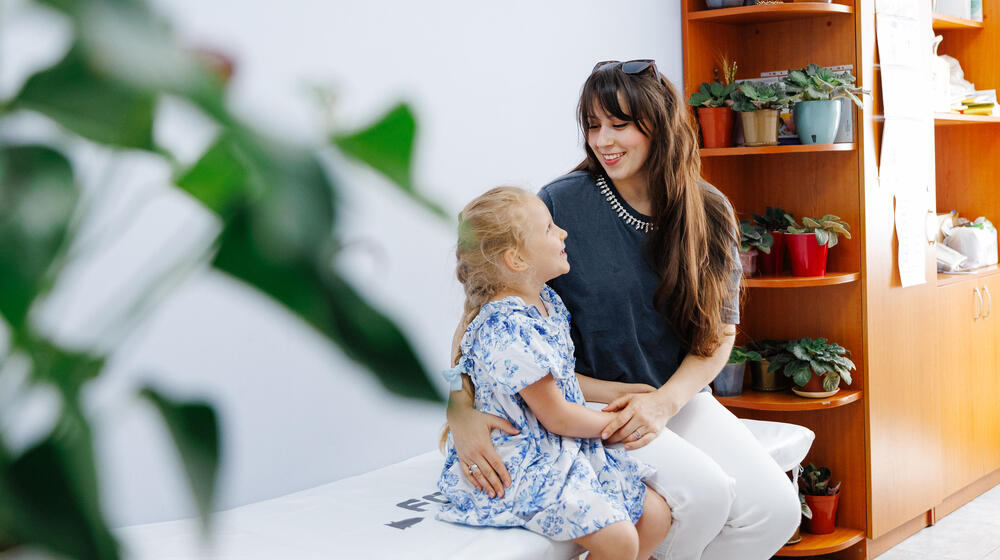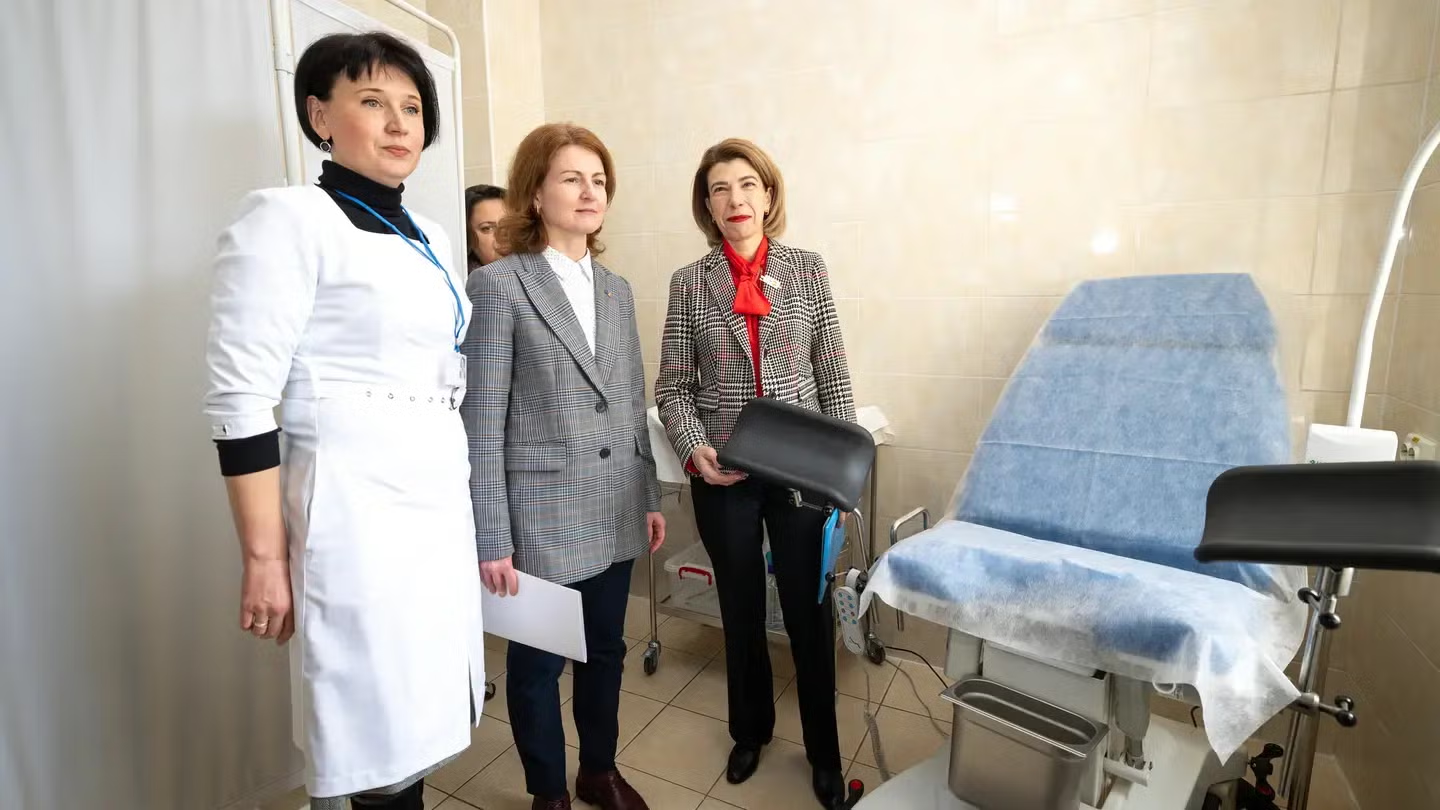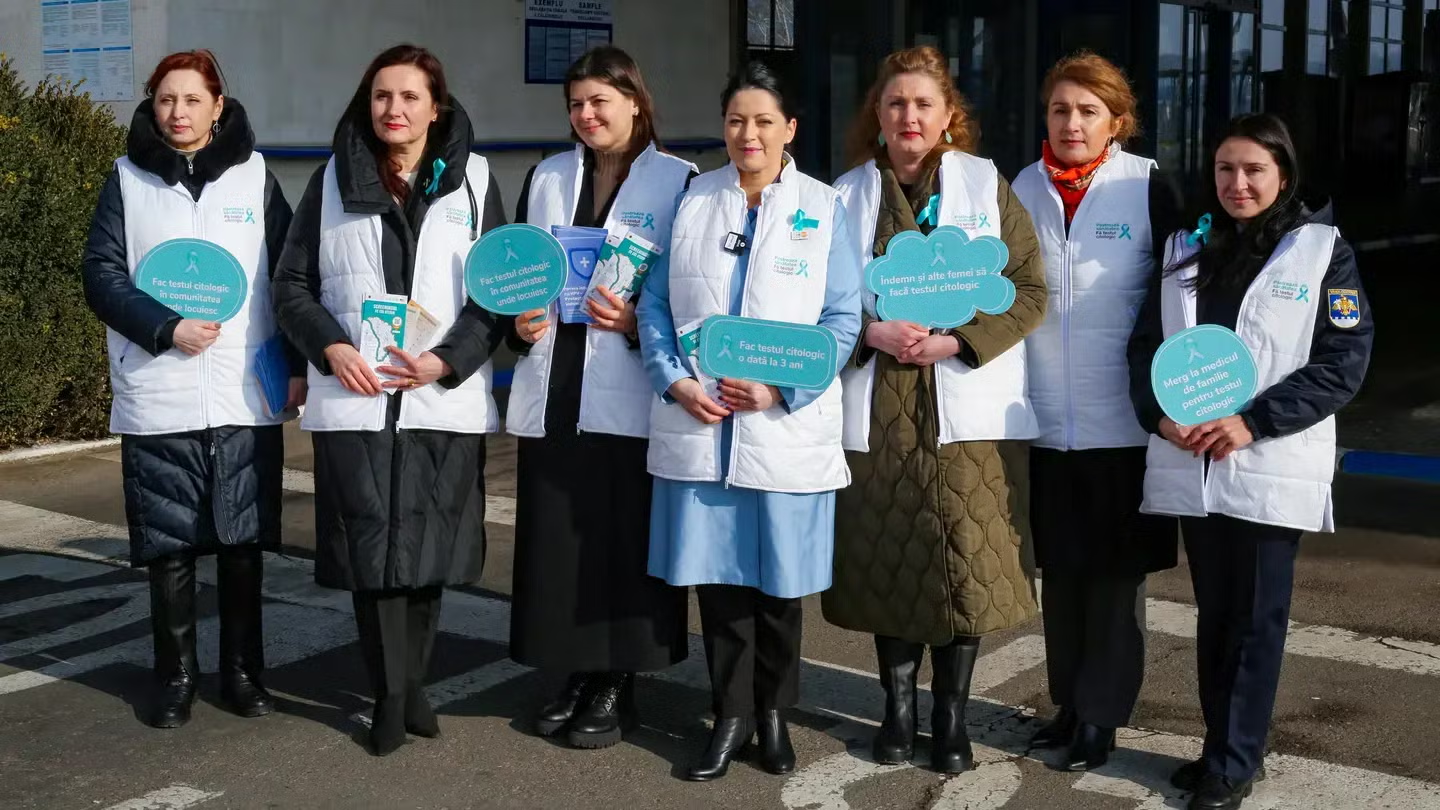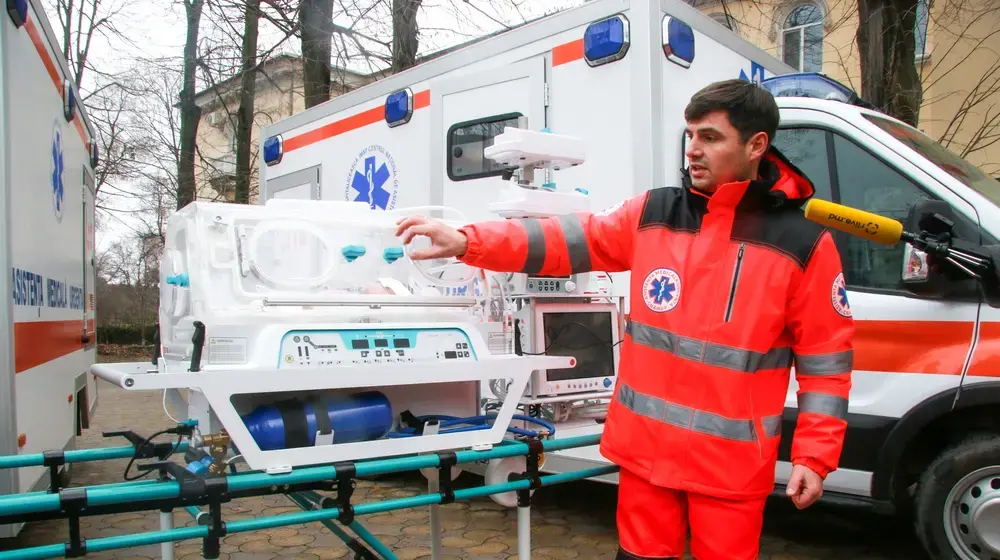"Many refugees want to go to highly developed countries, motivated by the economic potential, infrastructure and standard of living. I had the opportunity to get to know several countries and I can say that the Republic of Moldova is the place where I feel good, because the medical and social protection services are accessible and friendly".
This is how Ecaterina Peciughina, aged 32, begins her story. She lived in the city of Odessa with her husband and daughter. She worked as a sales manager while her daughter, Sofia, went to kindergarten. The day of February 24, 2022, changed their entire lives.

On March 4, Ecaterina and Sofia crossed the state border of the Republic of Moldova, the husband being forced to stay in Ukraine. They had only one final destination in mind - Chisinau, given that Ecaterina's grandmother (who has Moldovan citizenship) and her mother previously lived here.
"Right from the first day, I felt how much kindness is hidden in the Moldovan people. I met generous people who, hearing about us from friends, allowed us to stay in their apartment, until we found an apartment in Chisinau to rent. We made friends with many Moldovans, our children became friends. Moldova is one of those countries that has helped the Ukrainian people a lot and continues to do so. Sofia attends a kindergarten in Chisinau, where a whole group is made up of children from Ukraine. The educators are wonderful and help them integrate," she says.
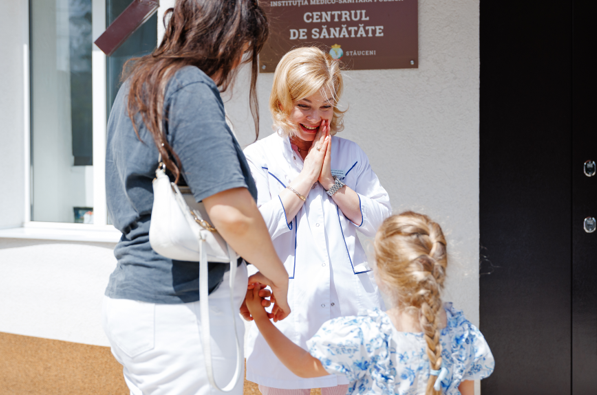
Since being in Chisinau, Ecaterina says she has benefited from free medical and social assistance and has interacted with a well-prepared, friendly and accessible system for children and mothers. The one who guides her and monitors their health is Ecaterina Guțu, family doctor at the Stăuceni Health Center.

"Unlike the services in other countries, here, in any situation, I can call the family doctor to ask for advice. It is very important for the doctor to know how to interact with children and parents, to have a relationship based on respect and understanding, and we enjoy this privilege. There were cases when I called for an ambulance, when Sofia was admitted to the hospital. All tests and medicines were free," adds the mother.

"A woman's health is no less important, especially when you live in a constant state of stress" - the family doctor kept telling Ecaterina, recommending her to carry out general examinations and routine gynecological checks.
"She explained to me that stressful situations can affect a woman's health, and I had neglected her a bit. On the recommendation of the family doctor, I performed general analyses, magnetic resonance, ultrasound of internal organs, etc. I also went to the gynecologist and had the cytology test. The results of the Pap test indicated that everything is fine, I will have it in three years. Finally, I gave time to my own health", says Ecaterina.

In the Republic of Moldova, refugees, who benefit from temporary protection or are in the process of obtaining status, have the opportunity to access primary health care services free of charge, by addressing the family doctor, the expenses being covered by the National Insurance Company in Medicine, including thanks to support from international organizations.
Right from the beginning of the war in Ukraine, UNFPA has undertaken to continue providing free and quality gynecological and obstetric services in the Republic of Moldova, including for the refugee population. Thus, UNFPA equipped several medical institutions in the country, including perinatal centers, with high-performance medical equipment, provided 20 ambulances for the prehospital emergency care system and 9 ambulances for perinatal centers throughout the country.
Also, in collaboration with the Ministry of Health, it expanded access to colposcopy services, by modernizing 12 colposcopy units throughout the country, in order to bring these services closer to every woman in the Republic of Moldova.
"After perfecting their documents, refugees benefit from free primary medical care and emergency care, just like in the case of citizens of the Republic of Moldova. Primary health care includes the consultation of the family doctor and his team, access to fully or partially reimbursed medicines, prophylaxis and vaccination services, taking notes of the pregnant woman, monitoring her during the entire period of pregnancy, monitoring the mother and the fetus after birth.

Also included here are gynecological check-ups, cervical and breast screening, advice on choosing a contraceptive method and services offered by youth-friendly health centres. Most of the refugees I see are mothers with children, pregnant women and the elderly. I check the children's immunization schedule and draw up the individual vaccination plan. Women aged 25-61 are definitely prescribed the cytological test, which is free", explains Ecaterina Guțu, family doctor at the Stăuceni Health Center.

Currently, Sofia is preparing to go to first grade, at a school in Chisinau. She also does English, dance, acting and painting lessons. All these conditions motivate Ecaterina Peciughina. Everything she sees around her inspires her – parks, greenery, museums, Moldovan cuisine, culture. She says that here she feels safe and fulfilled, and her greatest desire is to obtain the citizenship of the Republic of Moldova.


